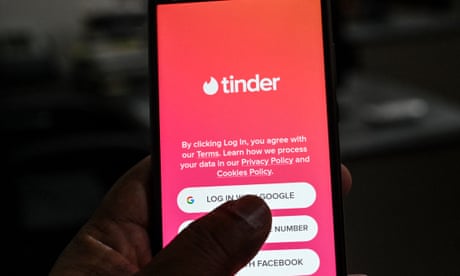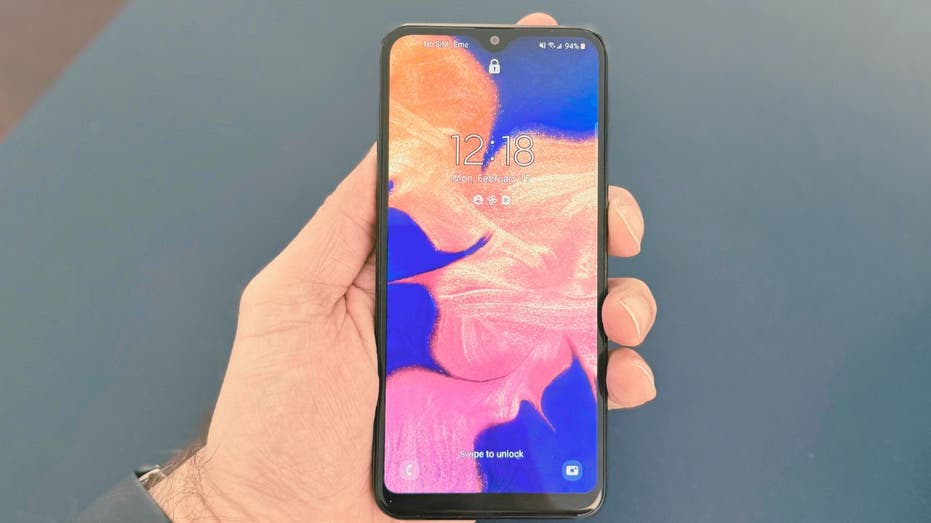- by foxnews
- 06 Apr 2025
Tinder now offers criminal background checks, but there’s a big problem
Tinder now offers criminal background checks, but there’s a big problem
- by theguardian
- 13 Mar 2022
- in technology

As of this week, Tinder users will be able to run criminal background checks on their potential dates. The feature - launched in partnership with Garbo, a background check provider that aims to make public safety information more accessible - is intended to make Tinder users feel safer.
But experts who specialize in sexual violence and surveillance have said the move is misguided, and risks amplifying the biases inherent in the criminal justice system.
Background checks are blunt tools that gloss over some fundamental nuances, including that most people accused of sexual violence do not interact with the criminal justice system, said Albert Fox Cahn, the founder of the Surveillance Technology Oversight Project. Only 310 of 1,000 sexual assaults are reported to police, according to the anti-sexual violence organization Rainn.
"[The tool] assumes that criminal justice involvement is a relevant risk factor in finding who will pose a danger in the future, but the vast majority of abusers have no criminal record," said Cahn.
Moreover, the feature could amplify discrimination against Black and brown people, who are disproportionately targeted by the police. "Tinder fails to recognize the way that all criminal history data in the US is irredeemably distorted by discrimination, giving a deeply biased view of who poses a 'risk' and who's 'safe'."
Garbo's background check tool lets Tinder users search whether someone has a criminal record using their name, phone number and age. "We know that the biggest indicator of future abuse or violence is a history of these types of behaviors. Whether it's online dating or the dozens of other ways we meet strangers in today's digital age, we should know if we're potentially putting our safety at risk," Garbo founder Kathryn Kosmides said in a statement announcing the tool. But using past violent criminal charges to predict future acts of violence is complicated, said Nicole Bedera, a doctoral candidate at the University of Michigan studying gender and sexual violence with an emphasis on college sexual violence.
For instance, victims of domestic violence who engage in self-defense are often punished in the criminal justice system for those acts, she said. "In some cases, yes, people who committed an act of violence and who've been found guilty of that in a criminal court will go on to commit an act of violence in the future. But you also do have people in this category that don't belong there."
It's that complexity which makes a tool like a background checker inefficient and unhelpful in weeding out unsafe matches, she said.
Bedera is concerned that the harms of this tool may outstrip any benefits, especially if it gives Tinder users a false sense of safety. The low rate of reports and convictions for sexual violence means even someone who has committed violent crimes in the past may not be flagged by the background checker because they were never reported.
"We really are talking about a small handful of people that have ever been convicted of one of these crimes," Bedera said, which means it could "lead people to have a false sense of safety when they are not in fact safe".
Tinder did not respond to a request for comment by the time of publication but said in its announcement that the company also partnered with the National Domestic Violence Hotline "to ensure survivors have 24/7 access to resources and information, including a direct chat connection on Garbo".
Bedera believes that Tinder's resources would be better spent acting on behavior they see on their platform, such as removing someone who is engaging in harassment. She also suggested Tinder could invest in sex education.
"Something I would like to see Tinder do is work on a solution that we know actually does effectively prevent sexual violence," said Bedera, "which is supporting comprehensive sex education in public schools."
There's a host of privacy and surveillance concerns as well, Cahn said, including making information that could be incorrect or biased accessible to a broad audience with little means of correcting the mistake. "Normalizing this sort of databroker surveillance creates a whole set of red flags as well," he said, pointing to the misconception that past crime is a definitive predictor of future crime. "Every time Silicon Valley sells us a surveillance crystal ball, they claim to predict who'll be a threat in the future, but (at best) it can simply amplify the harm of how people have been profiled in the past."
- by foxnews
- descember 09, 2016
Viral photo of McDonald's PlayPlace prompts superfan to reveal fast-food chain's stray from nostalgia
McDonald's superfan shares the standout PlayPlaces he has seen after a viral photo showed a "heartbreaking" McDonald's PlayPlace in Franklin, Tennessee.
read more





